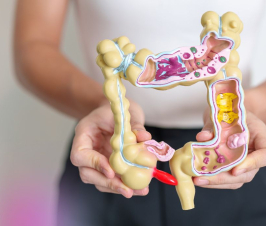It’s the End of a Long Day and Sleep is Just Minutes Away
Your head finally hits the pillow and you know that in just a few minutes you’ll drift off to sleep until you finally wake up in the morning. It’s routine now. You sleep straight through the night, wake up the next morning feeling refreshed and ready to tackle the day. After you open your eyes, you take just a few moments to contemplate the day ahead.
You plant your feet on the ground before finally standing up and feel the energy and spring in
your legs. You feel strong, motivated and ready to tackle the day, thanks to a night of refreshing
sleep. That’s the way it should be but for many, good quality sleep is a distant memory.
What’s happening in your body while you sleep?
A restful sleep makes all the difference by allowing your body time to repair, regenerate, and
rejuvenate. Every night, your body’s circadian rhythm or clock signals to your body that it’s time
to sleep. Hormones such as melatonin are secreted and cortisol levels decrease.
When your body is denied this opportunity to repair itself, the body slows everything down and
you feel tired, fatigued, even lethargic. Diseases and illnesses develop. Restoring a healthy
sleep pattern can often reverse the progression of chronic illnesses by allowing the body the
opportunity to re-balance and heal itself.
5 Natural Approaches to Improving Your Sleep
1) Avoiding Stimulating Exercise
A lot of people ask if exercise helps with sleep and the answer is – it really depends on the type
of exercise. Cortisol levels naturally decrease at night to signal to the body that it’s time to sleep
so that your body can repair and regeneration. Doing certain types of exercise before you sleep
can spike cortisol levels and disrupt your circadian rhythm.
Avoid cardiovascular exercise within 2 hours of sleep as a general guideline. For most people,
gentle stretching and calming exercises such as yin, restorative or kundalini yoga do not
increase cortisol levels.
2) Improving Sleep Hygiene
Having a restful night’s sleep requires a good sleep routine. This includes creating an
environment conducive to sleep by ensuring that your room is completely dark and does not
trigger a stress response – a low clutter a room, a room that doesn’t remind you of work. It’s
also important to have a healthy sleep routine – sleeping regular hours, going to sleep by 11pm
and avoiding stimulating activities before bed.
For most people, the biggest challenge is not using any electronic devices, turning off the
television, reading devices, cell phones and computers.
3) Improving Gut Health
For many, establishing a healthy, refreshing sleep routine means improving gastrointestinal
health. A healthy gut means a digestive tract abundant with healthy gut bacteria to properly
metabolize tryptophan (an amino acid) into a form that can be used to synthesize melatonin, a
sleep hormone crucial to restful sleep. When your gut is inflamed from a poor diet, stress, or
autoimmune conditions such as Crohn’s Disease, gut bacteria are no longer available and both
tryptophan and melatonin levels decrease.
Signs that your gut health can be improved include:
• bloating
• flatulence
• GERD/heartburn
• indigestion
• Irregular bowel movements – constipation, or diarrhea
4) Eating a Small Snack
Low blood sugar levels awaken the mind and body in the middle of the night. As blood sugar
levels decrease, the body interprets this as a stressor and releases cortisol. This cortisol spike
tricks the body into thinking that it’s morning and time to wake up. People often report waking
up in the middle of the night feeling wide awake.
Blood sugar fluctuations can be prevented by eating a small, low carbohydrate, high protein or
high omega-3 fat snack before going to sleep. Carbohydrates increase blood sugar levels
quickly but also creates a drop just as quickly whereas proteins and omega-3 fats tend to
maintain blood sugar levels throughout the night – ensuring a good night’s sleep.
5) Calming Your Nervous System
To fall asleep, the nervous system must be calm and relaxed – in parasympathetic mode. Stress
management techniques should be incorporated into your sleep routine. Techniques such as
meditation & breathing, listening to music, writing, reading are great for this. Various teas can
also be used – chamomile tea, lavender tea, rose tea, to just name a few.
Conclusion
A healthy sleep routine requires the coordination of several body systems including your
endocrine system (hormone), digestive system and mind. Successfully improving your sleep
isn’t always simple and requires time and patience. It’s important to work with a health care
provider who can help you get to the underlying cause of your insomnia. Getting a better night’s
sleep means being more productive, improving your cognitive power and also reversing and
preventing chronic health conditions.
A licensed Naturopathic Doctor will work with you to put together a plan to improve your sleep
and your overall health. Naturopathic Doctors have a wide scope of practice and it’s important
to find a Naturopathic Physician whose practice complements your needs and goals. Your
Naturopathic Doctor may suggest herbal products, acupuncture, nutraceuticals, supplements,
hydrotherapy, chiropractic manipulations, dietary and lifestyle modifications.
 Dr. Olisa Mak is a licensed ND with a general family practice in downtown Vancouver. She has a special interest in bringing awareness to the mind-body connection using homeopathy, botanicals and lifestyle counselling.
Dr. Olisa Mak is a licensed ND with a general family practice in downtown Vancouver. She has a special interest in bringing awareness to the mind-body connection using homeopathy, botanicals and lifestyle counselling.
She is driven to educate, inspire and empower those around her. Everyone has the potential to achieve their dreams and goals but are often unable to because of their fears, perceptions and circumstances. Dr. Mak strives to work with her patients to remove barriers, empowering patients to seize opportunities and to make the life they want a reality.

















